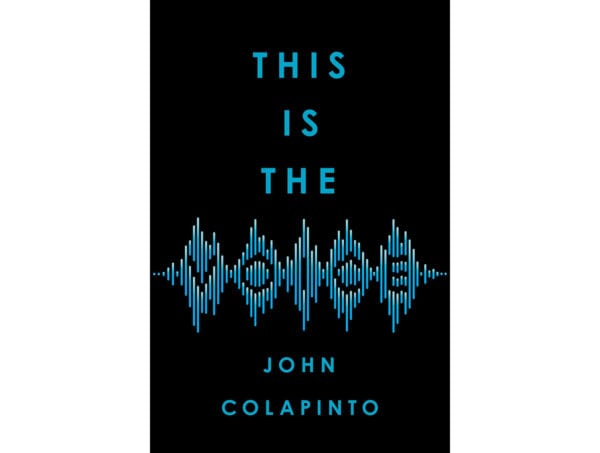
“Project your voice without fear or favor,” John Colapinto writes in his new book, This Is the Voice. “Be aware of its full, fantastic range of expression, and revel in it.” This exploration of our ability to speak, and why our voices make humans the dominant species, arrives in the middle of a pandemic, when many of us aren’t using our voices like we used to; for those of us who live alone, it’s easy to go some days without speaking at all.
This Is the Voice is written in an approachable blend of common parlance and scientific terminology, reminiscent of Wired’s excellent YouTube series on accents with dialect coach Erik Singer. Like Singer, Colapinto is at his most fascinating when exploring linguistic differences across regions and countries, as well as the impact of voice in societal hierarchies.
However, the danger here lies in using science to paint with a broad brush. For example, Colapinto’s discussion of sexual dimorphism focuses on vocal traits of women and men, as well as “gay voice” as “a third style of sexual vocal signaling in humans,” but nowhere in the book do we learn about the voices of people who are non-binary, genderqueer, or agender. People who don’t fit into a strict female-male binary are often left by the wayside, as in all of the book’s anecdotes and assertions about mothers and fathers, women and men, actresses and actors, and female versus male timbre.
This Is the Voice also contains uncomfortable language related to people of colour: the author uses the dichotomy of “a city-dwelling investment banker and an igloo-dwelling whale hunter”; compares the language of the Pirahã people to Motherese, the baby talk parents use with their infant children; and describes the vocalizations of that same tribe’s language as “a profusion of exotic songbirds, a melodic chattering scarcely discernible, to the uninitiated, as human speech.” And it’s jarring at times to be reading about African-American Vernacular English from the perspective of a white man, especially in written examples of dialect, such as the deletion of the copular verb.
Colapinto says voice makes us the dominant species. What about people who are mute? Or people who are deaf? Where does sign language fit in? Humans have a voice insomuch as our larynx has moved and we can speak, but consider how little scientists know about the psychology and science of voice, and even less about the human brain. Some scientists (erroneously) assumed for so many years that babies are born with language already implanted in the brain; therefore, can’t it also be possible that humans haven’t yet discovered other species’ “voices” or languages? Are humans truly at the top of the food chain, as claimed?








